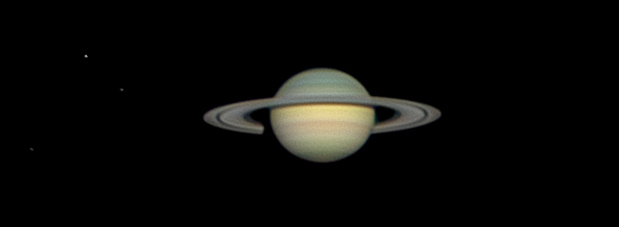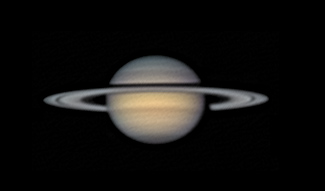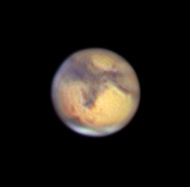M106
L: 100 x 10s (840k)
RGB: 17 x 30s (spc900nc)
The image is resized to 75%.
Philips SPC900NC webcam - SC1
Philips Toucam Pro II (840k) webcam - SC1.5 with b/w ICX098BL-E ccd
Meade Starfinder 10
L: 100 x 10s (840k)
RGB: 17 x 30s (spc900nc)
The image is resized to 75%.
M51 - Whirlpool Galaxy
L: 18 x 20 seconds + 50 x 10 seconds (840k)
RGB: 45 x 20 seconds (spc900nc) from an earlier imaging session (February 16 2008)
The image has been resized to 75%.
L: 1200/2400 frames (840k, orange filter)
RGB: 500/1100 frames (spc900nc, uv/ir-block filter)
The storm is back, but it looks like there is more than one.

From left to right: Dione, Rhea, Thethys and Saturn.
L: 1800/4100 frames. Imaged with uv/ir block filter and a simple orange filter (840k)
RGB: 500/1100 frames. Imaged with UV/IR-block (spc900nc)
L: 700/2200 frames (840k, with UV/IR-block filter)
RGB: 300/1000 frames (spc900nc, with UV/IR-block filter)
A storm is visible on the surface of Saturn.
An LRGB image of Mars.
L: (740k, 740nm Ir-pass filter)
RGB: (spc900nc, uv/ir-block filter)

A simple RGB image of saturn taken with my SPC900NC webcam and an UV/IR block filter.
In total the best 1000 frames out of 5800 were selected in Registax. Hardly any post-processing was needed.

L: 500 frames 742nm Infrared pass filter (740k)
RGB: 500 frames (spc900nc)
Stacked in Registax v4, combined and processed in Photoshop CS3
An animation of Mars consisting of three images taken between 01:10 and 01:41 (UTC).
The images are simple RGB stacks of about 500 frames each.
An animation of Mars consisting of three images taken on 0:52, 1:27 1:51 (UTC).
Mars is still very small, but I was amazed with the amount of detail in these images RGB.